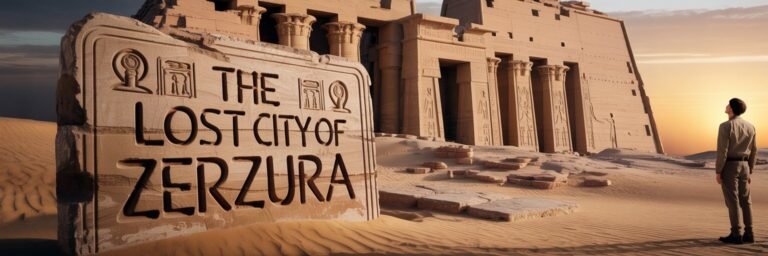INTRODUCTION
In the unfolding history of mankind, few periods have been as transformative, controversial, and diverse as the Age of Colonialism. Spanning over five centuries, from the late 15th to the mid-20th century, the period saw Europe’s leading nations, Spain, Portugal, Britain, France, Netherlands, and later, the United States, establish colonies across the globe. A journey through colonial history unveils complex narratives of exploration, exploitation, cultural exchange, and violence, scored to a symphony of ambition and discovery. As we delve deeper, we’ll explore the intricate labyrinth of colonial history, unraveling the veiled truth buried under centuries of interpretation and mythologizing.
HISTORICAL BACKGROUND
Colonial history began in earnest during the late 15th century, marked by Christopher Columbus’s ‘discovery’ of America in 1492 and Vasco Da Gama’s navigation to India in 1498. These exploits opened up hitherto unknown territories for Europe’s monarchical regimes, sparking a brutal scramble for colonies. Territories in Asia, Africa, and Americas rapidly transformed into prosperous colonial assets, facilitating imperial expansion, economic prosperity, and international dominance.
Spain and Portugal were the early torchbearers of colonialism, establishing colonies in Americas (New Spain), Asia (Portuguese India) and Africa (Portuguese Angola). The Treaty of Tordesillas (1494) divided the ‘newly discovered’ lands outside Europe between the two powers. In the late 16th century, Britain, France, and the Netherlands joined the colonial race. These settlements evolved under the colonial dictate, affecting the indigenous way of life forever.
THEORIES AND INTERPRETATIONS
Academic discourse on colonial history has typically oscillated between two dominant theories. The traditional Eurocentric theory posits colonialism as a force of ‘civilizing mission’, that brought economic and social modernity to ‘backward’ societies. Scholars like Niall Ferguson argue that British colonialism laid the foundations for liberal democracy, capitalism, and rule of law in various parts of the world.
On the other hand, the dependency theory, often championed by post-colonial scholars such as Walter Rodney, presents a stark contrast. They argue that colonial empires systematically underdeveloped their colonies, exploiting their resources, stifling indigenous industries, and establishing economic systems disproportionately favoring the colonizers.
MYSTERIES AND CONTROVERSIES
Colonial history brims with enigmatic tales and controversies. For instance, the mysterious Lost Colony of Roanoke remains an enticing puzzle. Settled in 1585 by the English on Roanoke Island (modern North Carolina), the colony vanished mysteriously by 1590, with no trace of the 115 colonists. Infamous controversies like the Jallianwala Bagh massacre (1919) in British India, where the British forces ruthlessly fired on peaceful protestors, continue to raise questions about the ethical conduct of colonial powers.
SYMBOLISM AND CULTURAL SIGNIFICANCE
Colonial history has left an indelible imprint on the cultural landscape of the colonized regions. The colonial process entrenched Western symbols, institutions, and ideology in local cultures, often resulting in a syncretic blend. For instance, the British colonial rule in India introduced the English language, Western education system, and criminal law—elements that continue to shape the Indian society even today.
To many, colonial structures symbolize years of oppression and conflict. However, others see them as historical markers embodying a shared past. The balance between preserving these symbols and addressing their colonial legacies forms a significant part of contemporary cultural discourse.
MODERN INVESTIGATIONS
Modern investigations and archival research into colonial history have elucidated new insights, unraveling the complex narratives of colonialism. The ‘Subaltern Studies’ group, started by Ranajit Guha, highlighted the Indians’ perspective by unpacking colonial narratives, shifting the focus from the elite to the ordinary people. Similarly, revisionist historians like Howard Zinn and Roxanne Dunbar-Ortiz in the United States have foregrounded the resistance and struggle of the colonized, providing a richer understanding of their experiences.
LEGACY AND CONCLUSION
As the vestiges of colonialism permeate present-day geopolitical alignments, education systems, and cultural practices, interpreting its legacy becomes vital. Undeniably, colonialism left deep social, economic and political fissures in the colonized societies, including racial stratification, economic disparities, and post-colonial identity crises.
However, struggling against the yoke of empire, many nations found their voice, sparking movements for rights and sovereignty. This volatile mix of struggle and resistance forged the nations as we see them today.
In conclusion, the intricacies of colonial history reveal a tale spun with threads of ambition, reward, dominance, resistance, and cultural ingenuity. To decipher ‘what really happened’, we must continue to reevaluate our understanding, moving beyond established narratives, and unearthing the experiences of historical figures across the spectrum. In the end, the true significance of colonial history may lie not merely in what happened, but in how we interpret and learn from it.






